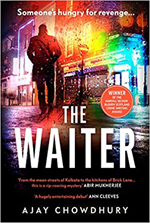The continuing appeal of a detective novel comes from our need to know. We read detective fiction to affirm our ways of knowing as valid, rather than subjecting them to a thorough critique. A typical detective story has a crime usually seen as a symptom of evil-personhood rather than social injustice, and the detective is shown as a master of deductive reasoning. The truth in these novels may be elusive, but always worth knowing. The hero’s goal is to right the wrongs by uncovering facts. And we as readers, vicariously, live the uncovering through the eyes and mind of the detective.
But what happens when a detective does not want to know the truth? What if a writer modifies detective fiction’s most typical features in order to question the readers’ assumptions about the genre? Does it free the reader for new ways of thinking? But isn’t the reader then suddenly making demands on popular fiction that are, say, similar to the demands we make on ‘canonical’ literature and seek in popular writing the kind of critical awareness we value in so-called serious novelists?

